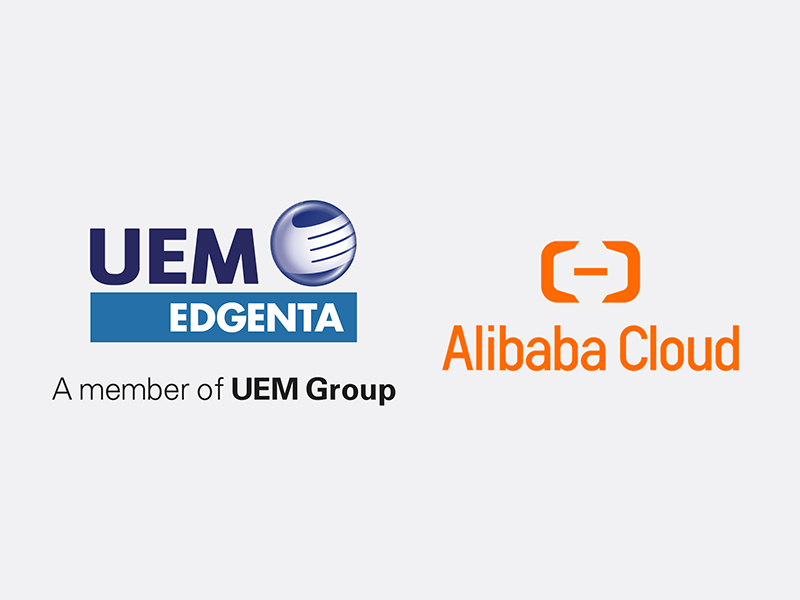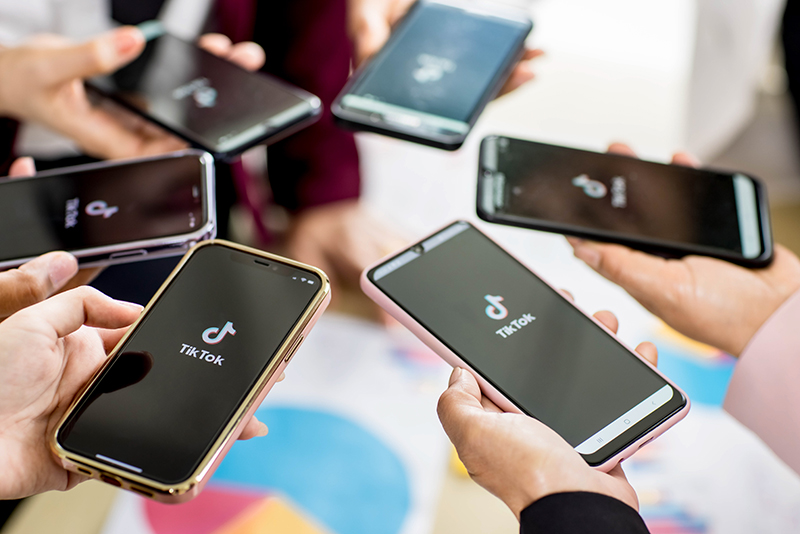Bite-Sized News Bits
Compilations of the latest news on 4IR and technological wave
UEM Edgenta, a Kuala Lumpur-based asset management and infrastructure company, faced the daunting task of simplifying its sustainability reporting processes for a compliance exercise and realised it lacked the necessary technological capabilities.
Alibaba Cloud, the digital technology and intelligence backbone of Alibaba Group, expressed interest in working with more companies to adopt its artificial intelligence (AI) sustainability tools and solutions last year; UEM Edgenta was one of the firms eager to pursue the partnership. It has since integrated Alibaba Cloud’s developed tool, which is capable of helping enterprises obtain real-time sustainability performance statistics and identify emissions sources.
Increasingly, Chinese cloud providers are also venturing into Southeast Asia to expand their market footprint, selling new tools and solutions targeted at firms enhancing their sustainability strategies. According to IDC, which tracks revenue from cloud vendors, Southeast Asia is now the fastest-growing cloud computing market globally and is expected to be valued at US$40.32 billion by 2025.
A couple of years since Spotify announced its plan to offer lossless music streaming, it might finally happen in 2024. The feature is already available on rival streaming platforms like Apple Music, Amazon Music, and Tidal. Lossless music streaming uses high bit-rate audio, enabling listeners to experience uncompressed music as intended by the artist. Spotify has updated the UI to include music streaming options with up to 1,411kbps, which was limited to 320kbps and is said to be rolling out these new options and updated UI on both desktop and mobile versions of the app, indicating lossless audio streaming is just around the corner.
Over 60% of Malaysians are not insured with any takaful plans. To reduce these numbers, Ouch!, which claims to be the first digital takaful operator recognised by the BNM Regulatory Sandbox, is shepherding a new era of financial protection.
As a fully digitalised takaful platform, Ouch! prioritises technology to streamline all processes for a more accessible, affordable, and efficient takaful experience. Participants can start with a quick coverage calculator on the application to determine their ideal protection plan in mere minutes. Additionally, certificate holders can customise their plans further to tailor them to their needs at any given time – providing a level of personalisation unmatched in traditional models.
Ouch! is set to expand its suite of solutions, soon offering members a comprehensive range of options, including medical, travel, and personal accident plans, all accessible through the website and app.
Technology has allowed activist Jordyn Zimmerman, a non-speaking autistic woman, to find her voice.
Zimmerman's early life was spent communicating through body language and pictures. She bounced between numerous school systems in Ohio. It was not until the age of 18 — when she began using Proloquo2Go, an augmentative and alternative communication app — that her true self was finally revealed.
She said the iPad technology gave her "so much confidence to connect with people" and transformed her relationship with her brother, fostering a bond that had been non-existent due to her communication barriers. She said she would like technology to be used more in education to help non-speaking students.
As American carmaker Tesla and China’s BYD Automobile compete neck and neck in most parts of the world, the Shenzhen-headquartered company is now in pole position in Indonesia's electric vehicle (EV) race.
In January, the Chinese EV maker started utilising a government tax break to ship three of its models – Dolphin, Atto 3 and Seal – to Indonesia, Southeast Asia’s largest economy, which boasts a population of 280 million.
The Indonesian government has said that the Chinese EV maker will invest US$1.3 billion (S$1.75 billion) to build the manufacturing facility, which can produce 150,000 vehicles a year.
DALL-E, introduced in 2021, combined learnt concepts to depict abstract ideas, such as an avocado chair. Following in 2022, Midjourney uses AI to capture and replicate artists’ specific styles.
However, for many Southeast Asian artists, their use of these programmes soon posed some cultural challenges.
“If you prompt (an AI algorithm) with ‘bamboo house,’ it will give you bamboo houses that are statistically on trend,” Mr Patrick Cabral told CNA. “But they don’t understand regional concepts, like what I mean by bamboo houses from pre-colonial Philippines.”
According to Mr Cabral, the lack of authentic depictions of Southeast Asia on the internet meant that AI generators could not produce accurate depictions of regional clothes, people or architecture.
TikTok is allowing some users to upload 60-minute videos to the platform, which could trouble YouTube and other streaming giants.
TikTok's latest update, allowing 60-minute videos, is a strategic move by the Chinese-owned social media platform to expand its product offerings as user growth slows. From its initial launch, where creators were limited to 60-second videos, the platform has now extended the limit to 10 minutes for all users and 15 for some creators. This move aligns with the upload lengths offered by TikTok's competitors, Instagram Reels and YouTube Shorts.
YouTube beats TikTok in terms of overall user base in the US. In a Pew Research Center survey conducted last year, 83% of the US adults surveyed said they used YouTube, while 33% said they used TikTok. Among respondents ages 18 to 29, 62% told Pew they used TikTok, but 93% said they used YouTube.
A video from Samsung Electronics garners attention as a seeming swipe against Apple, part of an intensifying rival between the tech giants amid the rise of artificial intelligence.
The roughly 40-second clip, published on social media platforms, starts with a woman picking up a damaged guitar in a paint-splattered, debris-filled room. She pulls up a score on a Samsung tablet and starts playing as a message appears on the screen: "Creativity cannot be crushed."
The video is widely seen as a response to an Apple ad released on May 7, in which instruments, paint, and other creative tools are crushed by a hydraulic press and replaced by the new iPad Pro. The latter ad drew widespread criticism for being insensitive to the creative process. Two days later, Apple issued an apology.







